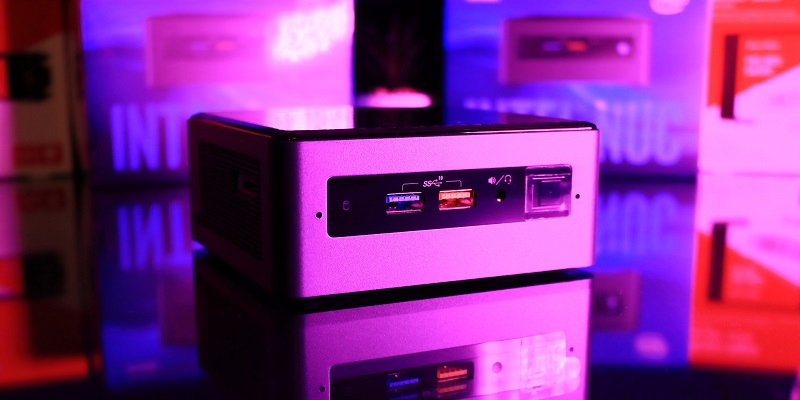Geekom has made waves in the tech industry with the introduction of their groundbreaking 4×4 NUC Mini PC. This innovative device boasts impressive speed and power, thanks to its integration of the Intel Core i9-13900H CPU, featuring an astounding 14 cores. Let’s delve deeper into the Geekom IT13 lineup, explore the capabilities of the Intel Core i9-13900H, and discuss the advancements made by Geekom to overcome the challenges of high TDP in Mini-PCs.
Overview of Geekcom IT13 Lineup
The Geekcom IT13 lineup offers a range of options, each catering to different user requirements. Alongside the Core i9-13900H, there are two other variants available: the Core i5-13500H and the Core i7-13700H. These options provide flexibility and choice, allowing users to select the level of performance that suits their needs.
The Significance of Intel Core i9-13900H
The Intel Core i9-13900H is the most powerful option within the IT13 lineup. As the world’s first 4×4 NUC Mini PC to house this processor, Geekom has truly pushed the boundaries of what is possible in the Mini PC market. With its 14C/20T configuration and a maximum turbo frequency of 5.4 GHz, the Core i9-13900H delivers unrivaled performance.
Technical Specifications of Intel Core i9-13900H
The Intel Core i9-13900H is a powerhouse of a CPU, offering exceptional processing capabilities. Its 14 cores and 20 threads allow for efficient multitasking and smooth execution of complex tasks. With a turbo frequency of 5.4 GHz, it can handle demanding applications and provide fast, responsive performance.
Memory and storage options
To complement the impressive processing power of the Core i9-13900H, the Geekcom IT13 Mini PC supports up to 64 GB of DDR4-3200 memory in a dual-channel configuration. This ample memory capacity ensures smooth multitasking and efficient data handling. As for storage, users have various options for customization, allowing them to tailor the Mini PC to their specific storage needs.
The DDR5 memory question
While the Geekcom IT13 offers remarkable performance with DDR4 memory, some enthusiasts question the absence of DDR5 memory support. Raptor Lake mobile CPUs, such as the Intel Core i9-13900H, are known to perform optimally when paired with DDR5 memory. However, it is possible that Geekcom has made strategic design choices to balance performance, cost, and availability.
Overcoming High TDP Challenges
One of the main reasons for the delay in utilizing Intel Core i9 CPUs in Mini PCs was their high TDP, which posed challenges for efficient cooling in compact devices. Geekom has addressed this issue with a revamped cooling system specifically designed to handle the high TDP of the Core i9-13900H. This innovative solution ensures reliable performance and prevents thermal throttling, even in demanding usage scenarios.
Pricing details
Geekom offers the IT13 lineup at competitive price points, making high-performance Mini PCs accessible to a wider audience. The Core i5-13500H variant is priced at $499, the Core i7-13700H at $689, and the flagship Core i9-13900H at $789. These prices reflect the exceptional value provided by Geekom’s cutting-edge technology.
Anticipation for Simply NUC’s release
While Geekcom has set a new standard with their 4×4 NUC Mini PCs, the industry eagerly awaits the upcoming release from Simply NUC. As a prominent player in the Mini PC market, Simply NUC is expected to introduce their own offerings to compete with Geekcom’s impressive lineup. Only time will tell what innovations and features Simply NUC will bring to the table.
Geekcom’s introduction of the world’s first and fastest 4×4 NUC Mini PC with the Intel Core i9-13900H CPU has shaken up the tech world. With its exceptional performance, the Geekcom IT13 lineup offers a range of options to cater to various user needs. While the absence of DDR5 memory support may raise questions, Geekcom’s innovative cooling system overcomes the challenges of high TDP, ensuring reliable performance. With competitive pricing and the anticipation of Simply NUC’s upcoming release, the Mini PC market is witnessing an exciting era of innovation and choice.

